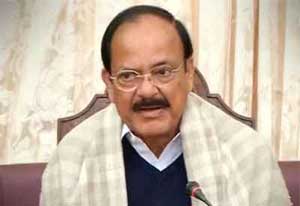- Home
- Medical news & Guidelines
- Anesthesiology
- Cardiology and CTVS
- Critical Care
- Dentistry
- Dermatology
- Diabetes and Endocrinology
- ENT
- Gastroenterology
- Medicine
- Nephrology
- Neurology
- Obstretics-Gynaecology
- Oncology
- Ophthalmology
- Orthopaedics
- Pediatrics-Neonatology
- Psychiatry
- Pulmonology
- Radiology
- Surgery
- Urology
- Laboratory Medicine
- Diet
- Nursing
- Paramedical
- Physiotherapy
- Health news
- Fact Check
- Bone Health Fact Check
- Brain Health Fact Check
- Cancer Related Fact Check
- Child Care Fact Check
- Dental and oral health fact check
- Diabetes and metabolic health fact check
- Diet and Nutrition Fact Check
- Eye and ENT Care Fact Check
- Fitness fact check
- Gut health fact check
- Heart health fact check
- Kidney health fact check
- Medical education fact check
- Men's health fact check
- Respiratory fact check
- Skin and hair care fact check
- Vaccine and Immunization fact check
- Women's health fact check
- AYUSH
- State News
- Andaman and Nicobar Islands
- Andhra Pradesh
- Arunachal Pradesh
- Assam
- Bihar
- Chandigarh
- Chattisgarh
- Dadra and Nagar Haveli
- Daman and Diu
- Delhi
- Goa
- Gujarat
- Haryana
- Himachal Pradesh
- Jammu & Kashmir
- Jharkhand
- Karnataka
- Kerala
- Ladakh
- Lakshadweep
- Madhya Pradesh
- Maharashtra
- Manipur
- Meghalaya
- Mizoram
- Nagaland
- Odisha
- Puducherry
- Punjab
- Rajasthan
- Sikkim
- Tamil Nadu
- Telangana
- Tripura
- Uttar Pradesh
- Uttrakhand
- West Bengal
- Medical Education
- Industry
Rise in Non-Communicable Diseases are deeply disturbing trend: VP Naidu

Cutting edge research in disruptive technologies such as Cybernetics and Artificial Intelligence (AI), including machine learning and augmented reality are altering the paradigms of medical science
Lucknow: Vice President M Venkaiah Naidu Friday described the rise in non-communicable diseases as a "deeply disturbing trend" and called upon the medical fraternity to educate the people on the dangers of leading sedentary lifestyles.
He was addressing the Annual Meeting of the National Interventional Council (NIC) of the Cardiological Society of India at the Sanjay Gandhi Postgraduate Institute of Medical Sciences (SGPGIMS) here.
Naidu quoted a 2017 report of India Council of Medical Research (ICMR), which said that the burden from non-communicable diseases increased from 30 per cent to 55 per cent between 1990 and 2016, while the communicable diseases dropped from 61 per cent to 33 per cent in the same period.
Read Also: Rising incidence of non-communicable diseases: Naidu expresses concern
Pointing out that factors such as high levels of stress, increased incidence of diabetes, blood pressure, smoking, excessive consumption of alcohol, lack of exercise and lack of proper sleep were contributing to cardiovascular diseases, he said that lifestyle modification was one of the key interventions needed to prevent premature heart attacks.
Naidu said that it had been proven beyond doubt that regular moderate-intensity aerobic exercise like brisk walking, cycling, jogging, and swimming for five days a week would help in reducing the probability of heart diseases.
Observing that India stands poised to reap the biggest demographic dividend in history, he opined that a healthy and agile youth was essential to achieve its dream of inclusive and sustainable development and occupy its rightful place of leadership in the world.
He stressed the need to encourage children to be physically active and be involved in sports and games right from school days to avoid non-communicable diseases.
He also advised them to say no to junk food as it was causing harm to their health and in turn affecting their quality of life.
Naidu said the nation must invest much of its resources in prevention and early detection of diseases and called for massive screening drives to identify risk factors for cardiovascular disease among people and take preventive measures.
Observing that primary health centres (PHC) must serve as bulwarks in our battle against cardiovascular diseases, the Vice President stressed that transforming PHCs into a robust, responsive and well-equipped network of institutions was important.
Mentioning that the nation has improved the penetration of healthcare services across the country, Naidu said that increase in the at-birth life expectancy from around 37 years in 1951 to around 68.3 years in 2011-15 has been the most noteworthy achievement in the public health arena since Independence.
He also advised medical students to render service for at least three years in Primary Health Centres in rural areas, before taking up new assignments.
Stating that India must invest more resources in research and development (R&D), he said unimaginable advancements were being made in Medical Science.
Cutting edge research in disruptive technologies such as Cybernetics and Artificial Intelligence (AI), including machine learning and augmented reality are altering the paradigms of medical science, he added.
Calling for improving our health sector in terms of quality, accessibility and affordability, the Vice President said, "Although our health care services are among the cheapest in the world, some of the life-saving drugs and procedures are still beyond the reach of the common man."
"All the stakeholders in the health sectors need to work in synergy to health care affordable and accessible to common man," he added.
In his address, Governor Ram Naik underlined the need to consider how the poor and affected people may benefit under the newly innovated Ayushman Bharat Yojna of the Union government which provides Rs 5 lakh insurance cover.
Medical Dialogues Bureau consists of a team of passionate medical/scientific writers, led by doctors and healthcare researchers. Our team efforts to bring you updated and timely news about the important happenings of the medical and healthcare sector. Our editorial team can be reached at editorial@medicaldialogues.in.


